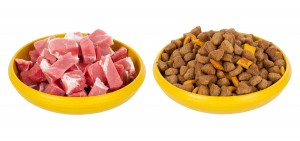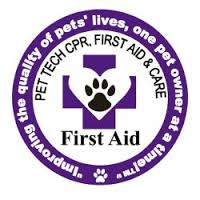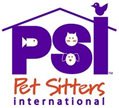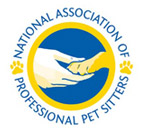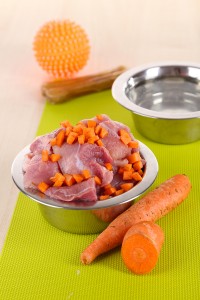
Throw out the bags of dry kibble! Dogs consume only 18-23% protein in their diet today, compared to the 56% their ancestors ate! Switching (slowly) to a raw diet has many health benefits. What does the “raw diet food” include? Fresh meat such as chicken or beef patties, turkey necks, fish, rabbits, whole raw eggs in the shell. Just make sure to spray white vinegar afterward to disinfect the area where you handled meat! Tossing in a few veggies and fruit makes sure your pet gets the nutrients they need.
Rather than buying glucosamine pills for your pet, a raw diet contains naturally occurring Glucosamine and Chondroitin compounds that can be beneficial to joint function and mobility.
gastrointestinal problems often develop when a dog or cat is switched from processed to raw food. There are two main reasons pets acquire GI issues from dietary transitions: the speed of the change in foods, and dysbiosis.
BEWARE! Changing your dogs food over too quickly can result in severe diarrhea! Vets recommend using the new food as a treat for a day, and keeping an eye on the condition of your pets poop (it should not be runny). Increase the number of new food “treats” over the next several days and continue to observe, replacing one whole meal of old kibble with the new raw food after a few days. After a week, discontinue the old food and feed only the raw diet. This will change the way your dogs poop looks – it will start looking like small hard balls of poop – which is normal. If your pet is having severe diarrhea please check-in with your vet for advice.
Where can you get the raw food? First, talk to your local butcher – his leftovers like chicken carcasses, chicken necks, and chicken feet are sold for cheap – perfect for your pet. Out in the wild, dogs eat all the guts, bones and fur – supplying the nutrients they needs. So, mixing in a few blueberries or peas with the food can compliment your dogs diet. Several websites (such as Primal Pet Food, Omas Pride, Stella and Chewy) offer frozen or dehydrated food (see references below).
1. Skin issues. Italian Bulldogs often have skin allergies and the grain-free diet helps keep it under control
2. Hip issues. Australian cattle or shepherd, meats contain higher levels of nutrients including glucosimine, essential fatty acids, vitamins, minerals, enzymes and antioxidants
3. Digestive issues. Pug and Shi Tzu’s with overcrowded teeth in their small mouths and sensitive systems
